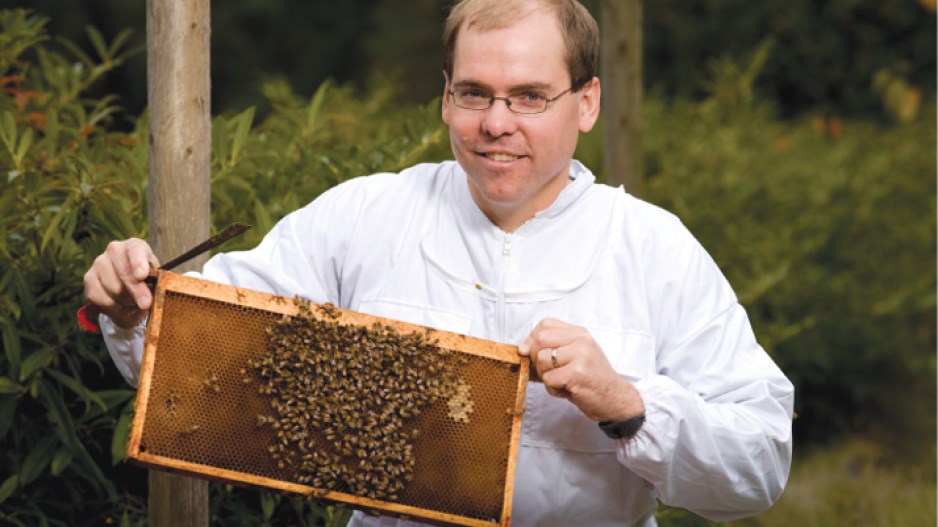What is killing nature's most prolific pollinators?
It could be argued that the rise in colony collapse disorder – mass, unexpected bee die-offs –is this generation's Silent Spring.
Rachel Carson's 1962 book documenting the effect of DDT on birds and other animals led to the pesticide being banned in the United States.
Now calls are growing for a ban on a widely used class of pesticides that has been linked to bee deaths, with the province of Ontario looking into how to move away from the use of neonicotinoids after complaints from beekeepers. The European Union introduced a ban this April.
Neonicotinoids, developed in the 1990s as a safer alternative to pesticides like DDT, are widely used across North America. In British Columbia, they are used by fruit, berry, vegetable and flower growers.
B.C. beekeepers say they are always concerned about the improper use of pesticides. But in this province, the biggest threat to bees continues to be the varroa mite, a pest that came to North America from Asia two decades ago.
“My general opinion on these calls to ban this pesticide is people need to be careful what they wish for because they might just get it,” Leonard Foster, a professor of biochemistry at the University of British Columbia (UBC), told Business in Vancouver.
Foster, who is also a beekeeper at UBC Farm, said banning neonicotinoids could lead to farmers going back to older classes of pesticides that need to be sprayed at the same time of year that bees collect pollen from blossoms.
Foster said he would like to see tightened rules on when and how farmers use the insecticides. He noted that unlike older pesticides that were sprayed on an entire field, neonicotinoids can be applied directly to plants that are threatened by insects such as aphids.
Yasmin Akhtar, a biologist in UBC's faculty of food and land systems, thinks farmers would be able to adapt to a ban on neonicotinoids without having to rely on older, more harmful pesticides. Certain neonicotinoids have been shown to last for a long time in the soil and can be transported by water even when selectively applied, Akhtar said.
“[Neonicotinoids] would be replaced by other insecticides that are less toxic and less harmful to the environment,” she said.
Alternatives could include microbial insecticides, which are based on bacteria and fungi.
Most farmers in B.C. try to use pesticides as little as possible, said Stan Vander Waal, a flower grower and chair of the BC Agriculture Council. Many growers use integrated pest management, a technique promoted by the provincial and federal governments.
The practice involves checking crops by sight for infestations, using alternatives to pesticides if possible and applying insecticides as a last resort to only the affected plants.
“If everyone went organic, yield would drop by 50%, and there could be an outright risk of losing some crops,” Vander Waal said.
He also fears that if Canada banned the pesticide, but the United States didn't, local farmers would be unable to compete.
Bee expert Mark Winston isn't sure a total ban on neonicotinoids is the answer. Instead, Winston, a professor at Simon Fraser University, believes a wholesale rethink of commercial agriculture is needed.
A host of factors, from the overuse of pesticides to loss of bee habitat and planting fields with just one crop, thus reducing a varied food supply for bees, is taking its toll.
“We don't need to dial all the way back to the mom-and-pop farms,” Winston said. “But we do need to find a middle ground.”
Foster and Gerry McKee, a commercial beekeeper from Burnaby, also pin blame on the large corporations that manufacture neonicotinoids. The beekeepers said companies have contributed to the overuse of pesticides.
“Companies approach growers – do you want the seed with pesticide or the one without? They both cost the same, so why take the chance?” McKee said. “Consequently the amount of insecticide-treated seed has just gone up astronomically.”




